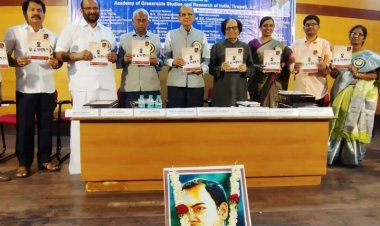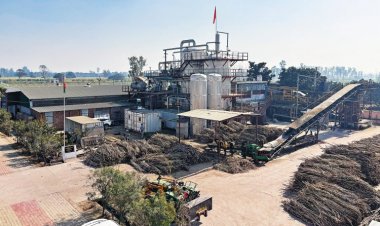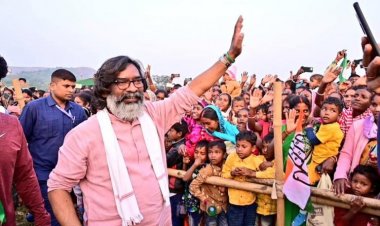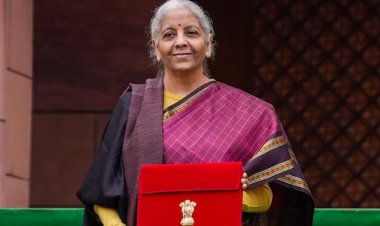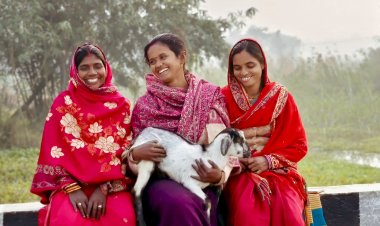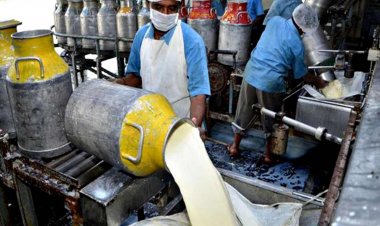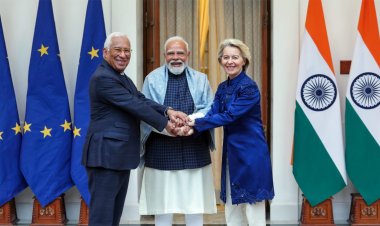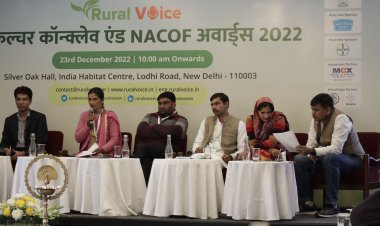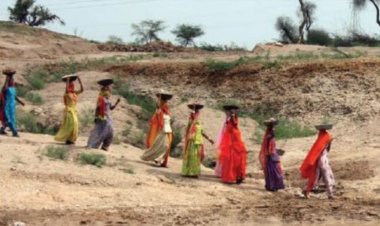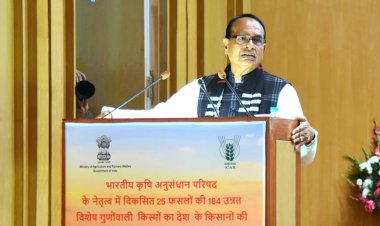International Day of Rural Women: Success stories of Pramila Devi, Rani Devi highly inspiring
Pramila Devi and Rani Devi are no high profile names. They come from non-descript hamlets in Nawada district of Bihar. But, the success stories of these women farmers on the occasion of ‘International Day of Rural Women’ on Sunday reflect as to how women are active agents of socio-economic change.
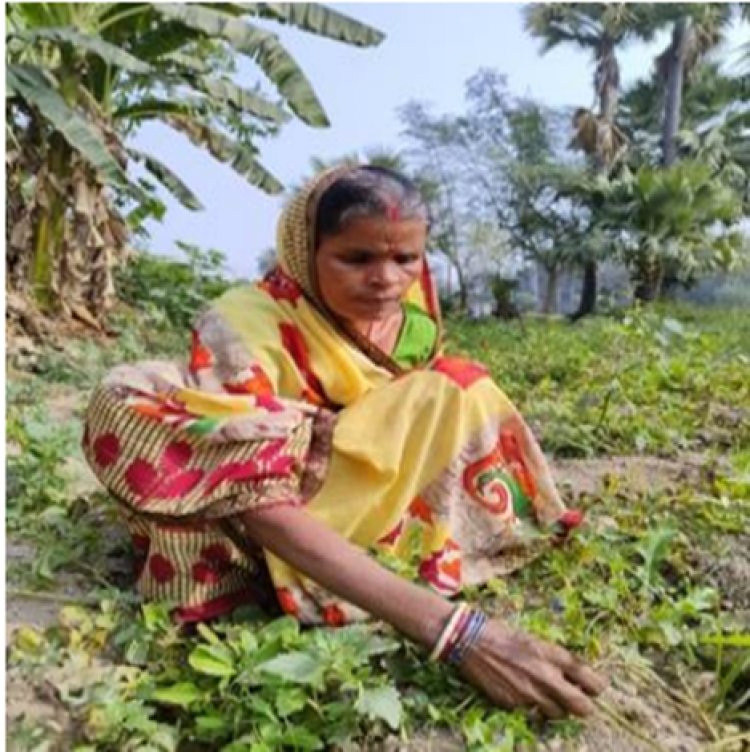
Pramila Devi has holistically addressed the challenges faced by rural women by providing financial literacy, agronomy training, and family nutrition to maximize the opportunities of women in agriculture.
Rani Devi had led and helped other women farmers to adopt better production practices ensuring in providing better yields and overall financial stability.
Pramila Devi and Rani Devi are no high profile names. They come from non-descript hamlets in Nawada district of Bihar. But, the success stories of these women farmers on the occasion of ‘International Day of Rural Women’ on Sunday reflect as to how women are active agents of socio-economic change. They are an integral part of farm activities and their role is imperative in ensuring sustainable agriculture.
Rural women are responsible for the integrated management and use of diverse natural resources to meet daily household needs. Despite agriculture being the basis for food security, women are facing challenges in the field due to limited training, inadequate technical knowledge, and access to finance, leading to lower rates of agricultural productivity than male farmers.
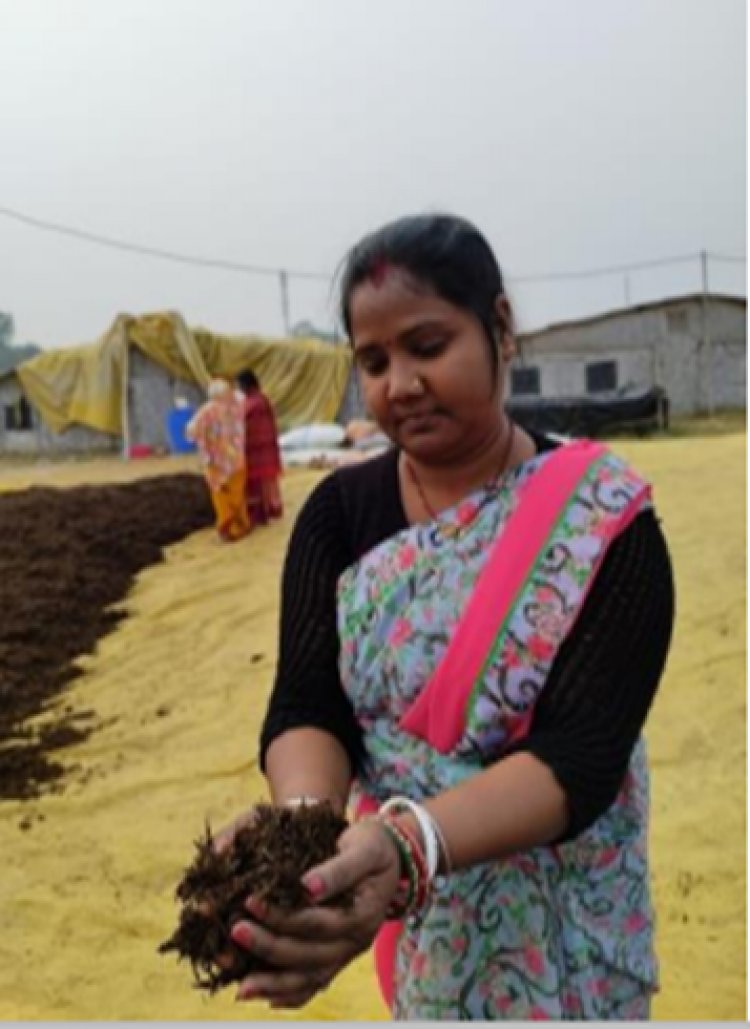
Rani Devi had led and helped other women farmers to adopt better production practices.
Corteva Agriscience, a global agriculture company, says Pramila Devi's journey is not just one of triumph over adversity; it is a testament to the strength of the human spirit and the power of hope.
Pramila Devi, a native of Pes village in Nawada district, Bihar, was born into poverty and denied an education due to societal norms and financial constraints. Her early years were marked by hardship and limitations, but within her heart burned a fierce determination to break free from the chains of her circumstances.
At the tender age of 13, Pramila was married in Odo, Nardiganj. She found herself thrust into a role where, due to prevailing beliefs, she was expected to focus solely on household chores and childcare, with no authority to make decisions for the welfare of her family. Reflecting on those early years, Pramila recalls, "I always yearned for more. I wanted to be educated and contribute to my family's well-being."
However, several years into her marriage, Pramila's life took a turn when she started attending village-level meetings organized by Corteva and PRADAN. It was during these meetings that she learned about the Direct Sowing of Rice (DSR) technique, which she found to be more affordable and promising compared to traditional transplantation methods.
Pramila vividly remembers the moment she discovered DSR, saying, "It was like a ray of light in the darkness. I knew deep down that this was the opportunity I had been waiting for." With unwavering determination, Pramila mustered the courage to challenge the prevailing norms. She passionately convinced her husband to accompany her to these meetings and explore the potential benefits of DSR. After engaging in long discussions about the advantages, she successfully persuaded him to adopt the DSR technique. In 2020, with the guidance and support of PRADAN's demonstrations for the Corteva Agriscience DSR Project, Pramila planted paddy on about 0.2 acres of land.
Initially, Pramila faced harsh criticism and ridicule from some family members and villagers who doubted the effectiveness of the DSR method. However, through frequent field visits and ongoing support from PRADAN, her fears were dispelled, and she grew confident in her ability to succeed. Her hard work paid off when the paddy harvest exceeded her family's previous yields, reaching approximately 480 kg from 0.2 acres of land (6MT per hectare). Those who had once mocked her now recognized her as a leader in the DSR technique.
Pramila's success fueled her determination, and she continued practicing DSR in the following years, gradually expanding her cultivation to nearly 1 acre and 0.31 acres of land. The timely harvesting of paddy allowed her family to sow wheat, lentils, and gram on schedule, leading to increased productivity and profitability. Alongside her farming endeavors, Pramila became an active advocate for DSR, inspiring and motivating other farmers in her village.
PRADAN's implementation of the Corteva Agriscience supported Direct Seeding of Rice (DSR) technology has played a pivotal role in equipping individuals like Pramila Devi with the necessary financial and technical resources. Under this project, PRADAN took charge of the implementation in Khunti and Hazaribagh districts of Jharkhand, as well as Nawada district in Bihar. Through various capacity-building events, they reached out to 8,552 farmers, providing them with financial literacy and technical support.
The adoption of DSR has led to increased yields, reduced resource usage, and a more reliable farming cycle. It has also contributed to a sustainable ecosystem and promoted gender equality in agriculture. Furthermore, by encouraging gender equality and women's empowerment, this initiative has paved the way for a more inclusive and prosperous agricultural sector.
After achieving recognition and respect, Pramila gained the confidence to make independent decisions. She opened her own bank account to save money from crop sales and fulfill her family's needs. Initially, she faced challenges in understanding the bank's procedures but eventually learned and mastered them. Her newfound independence is evident, and she no longer relies on others for assistance.
Pramila’s journey continues as she is dedicated to empowering women farmers, encouraging them to be independent and embrace DSR practices. She serves as a role model for women's empowerment, firmly believing that women are equal to men and that, with determination, they can achieve anything.
Rani Devi lost her mother at a young age and as her father found it difficult to rear several children, she was married off very early in life. Her aspirations for education were put on hold after marriage, and she could only study until Class 10. She was married into a household where her husband was indifferent to the needs of his family, Rani Devi faced taunts and curses from her in-laws.
"Gharki bahu bahar jaegi, anjan logo se milegi, toh log kya kahenge" — these were just a few of the daunting obstacles that Rani Devi, a strong and compassionate woman from the village of Pandpa in block Nardiganj, district Nawada, Bihar, had to overcome on her path to becoming a shining example of women empowerment.
As a daughter-in-law from an upper-caste household, she encountered biases and challenges. Trapped in the monotonous cycle of household chores, she yearned to break free from the confines of her existence.
Two years ago, Rani Devi embarked on a journey of self-discovery, realizing that her daily routine lacked meaning and satisfaction. However, stepping outside her home became a battle against her entire household, who vehemently opposed her decision. They feared that her interactions with strangers would tarnish their family's reputation.
Despite these obstacles, Rani Devi joined Corteva and PRADAN’s initiative as a Community Resource Person (CRP) to train farmers on Direct Sowing of Rice (DSR) and improved farming practices. The initial year was arduous for her, as she had never stepped out of her home and did not receive the desired support from her family.
Rani Devi's commitment and the tangible results achieved through implementing DSR on her 0.6 acre land are remarkable. With the support of Corteva and PRADAN, she achieved a productivity of 14.5 quintals, surpassing the 12 quintals obtained through traditional transplantation methods.
As a result, Rani Devi earned an extra income of INR 5000 from DSR. This showcases the transformative impact of Corteva's support in empowering women farmers like Rani Devi. Through the adoption of DSR, there have been improvements in yields, resource efficiency, and the reliability of farming practices. Also, it contributed to a sustainable ecosystem and promoted gender equality in agriculture.
Witnessing Rani Devi's unwavering commitment to her work, her husband began supporting her and treating her with respect and dignity. He accompanied her during fieldwork and took equal responsibility for their children and family. These two years brought about a revolutionary transformation in Rani Devi's life, and she now actively advocates for women's empowerment.
Rani Devi now serves as an active ambassador for DSR, supporting farmers through training and guidance. Her leadership and experience have enabled her to reach out to 117 farmers, who have cultivated DSR on 83 acres of land under her guidance.



 Join the RuralVoice whatsapp group
Join the RuralVoice whatsapp group


















